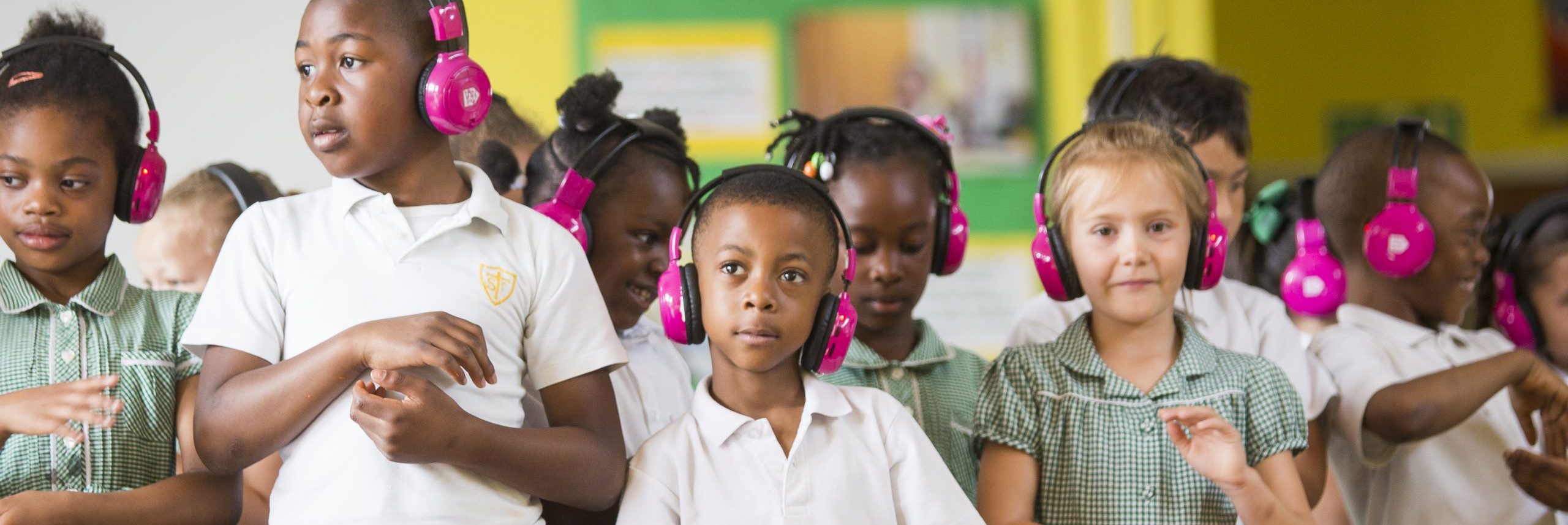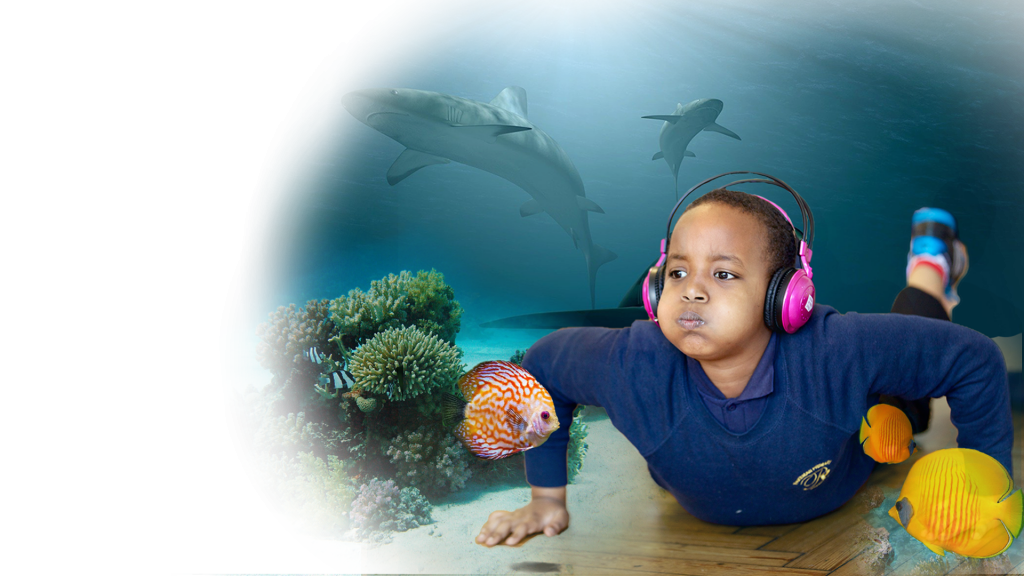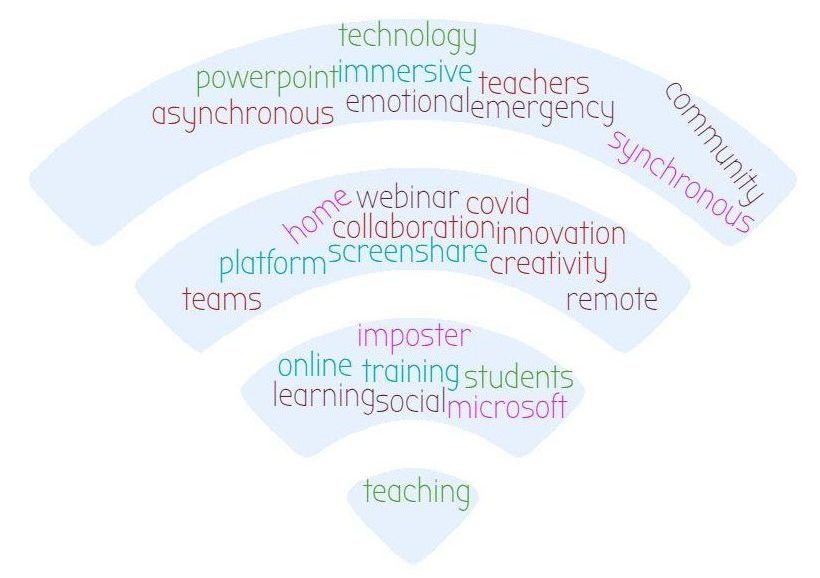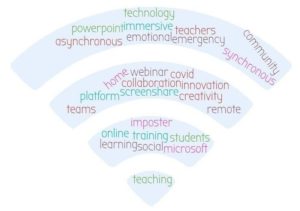
Donna Shah, a long term supporter and friend of now>press>play, explains how she’s creating a new normal, where technology’s place in education in the future will be and how she’s getting on in her new role as Assistant Digital Learning Adviser at Cognita.
Emergency remote, online, synchronous, asynchronous – all words that have become part of our everyday language and not at all what I would have predicted when I started my new job role in January this year. The same month that I changed my social media headers to share the message that ‘This is my Year’. In a way, the enforced education changes due to C-19 have supported this mantra of mine for 2020. My new role as Assistant Digital Learning Adviser at Cognita was predominantly based on a couple of 1 to 1 device pilots with pupils. Until 23rd March I had the pleasure of training staff and students in using Microsoft tools on their device to enhance teaching and learning in the classroom, supporting using mixed feedback methods and integrating audio and visual within this.
How quickly things change!
As a global school group, Cognita had the benefit of schools in Asia moving to alternative education provision in the months preceding lockdown in the UK. A protocol was in place, providing a buffer week for schools (staff and pupils) to ready themselves for the new way of working, and which saw physical work packs being provided for students. Timing was such that in most schools, this ‘remote learning’ period led up to the Easter break. ‘But if the students were home with paperwork packs, just what did the teachers have to do?’, I have heard and seen on multiple occasions. Well this is where I came into phase two of my job, one which was as sudden for me as it was for everyone else.
Although I have presented and led training on using Microsoft tools in the classroom on many occasions, the imposter syndrome in me returned but in a different guise. I found myself, whilst in self isolation, delivering training to schools about the tools they can use for online learning, and using the very method that I was demonstrating to them to use. As you can imagine, the range of experiences in using digital tools was immense: from a device being used purely to access the whiteboard up to multimedia content creators. Yet at this moment we were all at the same point, trying to navigate our way around platforms not yet in place as student Office accounts had not even been created yet. No matter what ‘level’ people placed themselves on the sliding scale of tech innovation, the key message I wanted to ensure was understood was that the situation was just as new to the students as it was to them, baby steps not giant leaps was the way to get started.
Over the ensuing weeks I managed to shrug off the imposter sat on my shoulder as I hosted webinar after webinar, question sessions afterwards and developed resources to enable the teachers to do what they wanted to do: teach their students. There are two of us in the Digital Learning team in the UK and luckily the online learning team that was set up using Microsoft Teams provided that cushion for us: all resources we created including 1-page guides and videos were shared to this group, people posted questions but gradually I found that other teachers were supplying answers and suggestions. Subject specialists collaborated on planning etc.
What began as a small group of educators now stands at around 1250 members, all of whom contribute and this has led to a real sense of community. This community is delivering live teaching sessions daily to all students; I’ve supported access to video meetings for Nursery children, shared tools to enable the recording of presentations and screens using PowerPoint and Flipgrid for example and provided guidance in how we can support the social-emotional needs for ourselves and our colleagues and students. To this end we are hosting a number of virtual events, staff can pop into the ‘Isolation Inn’ to meet friends and colleagues at the quiz; students, staff and parents can participate in the #CognitaHomeGames (Promo video), as well as staff hosting masterclasses in cooking, virtual choirs and musical competitions (Akeley Wood School Tweet).
Now five months into my job, I have ‘met’ people from around the world, shared tears of frustration and joy, repeated myself multiple times and played ‘Online Meeting Bingo’ on numerous occasions!
Is this what I expected when I accepted the job? Definitely not but I am now confident that all of our schools are able to use the basic tools to deliver online learning in a format suited to their school and students, leaving me to focus on the deeper learning that can be accessed and which develop the so called ‘21st century learning skills’ such as collaboration, communication, creativity and critical thinking. I will be able to introduce innovative resources such as now>press>play to provide an immersive experience for our students, spurring on their imaginations whilst developing their empathy.
So what do I think the future holds for education? As schools plan to make a somewhat trepid return to the classroom, we are not returning to the places we left. Social distancing will mean that schools continue to use online/remote learning to reach all of their students, we will continue to use technology both in school and at home but not just to replicate or replace pens/paper but as a tool to develop the leaders of the future.
Donna Shah – Mum and Nanna first, large scale EdTech user second. I’ve worked in the education sector for over 20 years in numerous roles before finding my love of technology around 8 years ago. Work as an Assistant Digital Learning Adviser at Cognita predominantly with their UK schools. now>press>play Ninja and MIE Fellow for London and a student in my spare time.
Read more:





